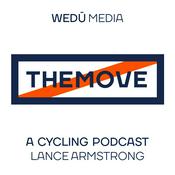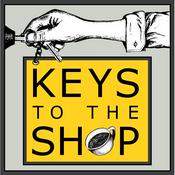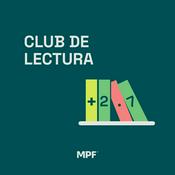426 episodios
- The Mel Brooks documentary, "The 99-Year-Old Man!" holds a lot of wisdom for cartoonists. Speaking of wisdom, it doesn't take much to avoid these common Kickstarter scams.
Today's Show
What can cartoonists learn from Mel Brooks?
Kickstarter
Summary
In this episode of ComicLab, cartoonists Brad Guigar and Dave Kellett discuss the challenges and joys of creativity, drawing inspiration from Mel Brooks' documentary. They explore themes of fear, kindness, and the importance of perseverance in artistic careers. The conversation also touches on the realities of navigating Kickstarter campaigns, including the rise of scams targeting creators. Throughout, the hosts emphasize the power of laughter and the need for support in the creative community.
Takeaways
Fear is a recurring theme in creativity.
The fear of not trying is greater than the fear of failure.
Kindness can have a profound impact on artists.
Perseverance doesn't mean sticking to what's not working.
You can reinvent yourself as an artist at any stage.
Kickstarter scams are on the rise; be cautious.
Laughter is a powerful tool for change.
Support from friends is crucial in creative journeys.
It's important to recognize the struggles behind success.
Creativity often requires stepping out of comfort zones.
You get great rewards when you join the ComicLab Community on Patreon
$2 — Early access to episodes
$5 — Submit a question for possible use on the show AND get the exclusive ProTips podcast. Plus $2-tier rewards.
If you'd like a one-on-one consultation about your comic, book it now!
Brad Guigar is the creator of Evil Inc and the author of The Webcomics Handbook. He is available for personal consultations. Dave Kellett is the creator of Sheldon and Drive. He is the co-director of the comics documentary, Stripped. - Cartoonists Brad Guigar and Dave Kellett dig into the many ways we react to humor — from full-on belly laughs to the silent internal “that was good” response. After that the way, they tackle some big (and surprisingly relatable) topics:
Are they actually going to use Patreon Quips?
Dave’s Bad 2025 — what went wrong, what he learned, and why it matters
Why you never stop building an audience, even when things feel “established”
And yes… being scared of Reddit comments is universal!
Summary
In this episode of Comic Lab, hosts Dave Kellett and Brad Guigar dive into the nature of humor in comics, prompted by a listener's question about whether funny comics truly elicit laughter or if they are simply enjoyable. Brad and Dave explore the subjective nature of humor, sharing their own experiences with laughter and recognition of craft in comedy. Next, they delve into the ongoing journey of building and maintaining an audience in the ever-evolving landscape of comics. They emphasize that there is no such thing as a 'built audience.' Audience engagement is a continuous process that requires constant effort and adaptation. Drawing on the metaphor of the Ship of Theseus, they discuss how creators must regularly replace and update their strategies to keep their audience engaged, acknowledging that audience members may leave for various reasons, including life changes or simply forgetting about the content.
The conversation also touches on the emotional toll of negative feedback, particularly on platforms like Reddit, where creators often face harsh criticism. Brad and Dave share personal anecdotes about dealing with trolls and the importance of focusing on the positive aspects of audience engagement. They conclude by reinforcing the idea that the creative journey is ongoing, and that every creator must continually learn and adapt to thrive in the industry.
Takeaways
"Not every year is going to be gangbusters."
There's no such thing as a built audience; you're always in building mode.
Audience engagement is like the Ship of Theseus; it's constantly changing.
You should aim to gain 2-6% new audience every month to replace those who leave.
Negative comments often come from unhappy individuals; don't take them personally.
Every creator must continually learn and adapt to thrive in the industry.
You get great rewards when you join the ComicLab Community on Patreon
$2 — Early access to episodes
$5 — Submit a question for possible use on the show AND get the exclusive ProTips podcast. Plus $2-tier rewards.
If you'd like a one-on-one consultation about your comic, book it now!
Brad Guigar is the creator of Evil Inc and the author of The Webcomics Handbook. He is available for personal consultations. Dave Kellett is the creator of Sheldon and Drive. He is the co-director of the comics documentary, Stripped. - An online publisher has become the center of some genuinely alarming stories. Brad and Dave break down five hard lessons comic creators can learn when a publisher shows signs of instability, mismanagement, or collapse.
Today's Show
Five Lessons from a Publisher in Crisis
Submitting your work for awards
Summary
Cartoonists Brad Guigar and Dave Kellett explore the importance of owning and controlling one's career in the comic industry. They discuss the need for business acumen among cartoonists and the risks of signing contracts. The conversation emphasizes the value of learning from mistakes in self-publishing, the power of transparency among creators, and the benefits of submitting work for awards. Ultimately, they stress that the goal is not independence at all costs, but informed consent in business relationships.
Takeaways
There is a percentage of humans who can close their nostrils underwater.
Cartoonists must be prepared to be business people.
Your best defense is often not signing a contract.
Mistakes in self-publishing are manageable and teach valuable lessons.
Transparency among creators is crucial for success.
Experience changes the power dynamic in negotiations.
Submitting for awards can provide valuable insights into your work.
Reviewing your work helps improve your editorial and aesthetic eye.
Self-publishing allows for greater control over your career.
Imposter syndrome should not prevent you from submitting your work.
You get great rewards when you join the ComicLab Community on Patreon
$2 — Early access to episodes
$5 — Submit a question for possible use on the show AND get the exclusive ProTips podcast. Plus $2-tier rewards.
If you'd like a one-on-one consultation about your comic, book it now!
Brad Guigar is the creator of Evil Inc and the author of The Webcomics Handbook. He is available for personal consultations. Dave Kellett is the creator of Sheldon and Drive. He is the co-director of the comics documentary, Stripped. - A listener asks: "Should you judge a book by its cover?" Cartoonists Dave Kellett and Brad Guigar say... YES! Next, a cartoonist who is too embarrassed to promote his own work gets some encouragement and words of advice from the veteran comic creators.
TODAY'S SHOW
Should you judge a book by its cover?
Too embarrassed to promote
Takeaways
A book's cover plays a significant role in its marketability.
It's important to design a cover that reflects the content of the comic.
Promoting comics can be challenging, especially in unexpected social situations.
Introverts can find it difficult to promote their work in person.
Having a decoy website can help ease the promotion process.
It's okay to feel uncomfortable discussing your work with strangers.
Using humor can help deflect awkward conversations about your work.
Online promotion can be more effective than in-person promotion.
You get great rewards when you join the ComicLab Community on Patreon
$2 — Early access to episodes
$5 — Submit a question for possible use on the show AND get the exclusive ProTips podcast. Plus $2-tier rewards.
If you'd like a one-on-one consultation about your comic, book it now!
Brad Guigar is the creator of Evil Inc and the author of The Webcomics Handbook. He is available for personal consultations. Dave Kellett is the creator of Sheldon and Drive. He is the co-director of the comics documentary, Stripped. - Starting a webcomic in 2026 isn’t about chasing algorithms or copying what’s popular — it’s about building something sustainable, creative, and yours. In this episode, Brad Guigar and Dave Kellett break down what new cartoonists actually need to focus on in their first years: writing first, consistency over hype, owning your work, and building an audience the right way.
You’ll learn why you don’t need Webtoon or Tapas, why monetizing too early can derail your career, how social media really fits into comics growth today, and why a website and mailing list are non-negotiable. This is a marathon mindset episode for creators who want to do comics for the long haul — and do them for love.
Getting off on the Right Foot
Don’t try to “game” your readership. Write about what YOU like. Readers are drawn to a creator’s passion. It doesn’t work the other way around.
Building readership takes time and consistency. Creating for love is essential in the early years.
Focus on writing as the core of comic creation. They’re called comics readers, not comics lookers. It’s all about the writing.
Focus on creating comics for the love of the craft. The first comics may only be seen by you; embrace the process.
Mistakes in the early stages are recoverable. Stop fretting over them.
Common copyright fears and how to approach them
Own and control your work
Building an audience
You do NOT need to be on Webtoon/Tapas. Look at the comics on the front pages of those sites? Does your comic look like those? Is your content similar? If not, you’re not going to fare well there. It’s pretty obvious.
Social media presence is still important for comic creators. Today, we recommend Bluesky and Reddit. ComicLab has Collections that provide solid social-media strategies. They’re free to members and available at a one-time fee for others.
Be active on social media to build your audience. Follow the Four Cs — Creation, Curation, Commercial, and Kindness
How many updates? FCS — Frequent / Consistent / Significant — there are no magic numbers.
Start building your mailing list NOW with a newsletter. This will be increasingly important when you turn to monetization in a few years. You should send every comic out in a newsletter post and you should also post a weekly newsletter of no longer than 500 words per update with BTS content (to the extent you’re comfortable sharing).
You need a website. This is not old or outdated — it’s incredibly powerful, and you need to start planning for one now… even if it’s a very bare-bones site. This is a non-negotiable.
Consider The 2-2-1 Rule: Two social media platforms, two newsletters (including a free-membership tier on Patreon), one website. Then, use these together to funnel traffic inward towards the website. Later, when you’ve launched monetization, the funnel will direct towards that.
Don't listen to your reader; listen to your readers
Don’t mistake social media followers for income.
Monetization
DON’T START MONETIZING IN YOUR FIRST YEAR. Maybe not even the second. Everything you need to know about crowdfunding is in the name. First comes the crowd, THEN comes the funding. In the first few years, you need to focus on building that crowd. The only thing worse than having no Patreon backers is having ONE Patreon backer. Hundreds of new comic creators have become derailed by focusing on monetization too soon.
Comic Cons: We don’t recommend them. They don’t build audience. They don’t have great sales unless you have a lot of merch that *does well as in-person merch* (there’s a difference!). And it’s very hard to make profit unless you can religiously control costs. If you’re making merch to go to the show, you’re doing this all wrong. Psychologically, a lot of folks like to “play” professional cartoonist by exhitibiting.
Accepted into show start making stuff to sell.
Start planning now for print — hi-res (400+ dpi), bigger than final size, cmyk, maintain layers, etc. Save in the native software.
Marathon thinking
Persistence is key; it's a marathon, not a sprint. If you need a schedule to post regularly, set a schedule and stick to it.
Develop your aesthetic by studying good comics.
Seek honest feedback to improve your work.
Reach out to other comics creators who are doing stuff that’s similar to yours and build networks.
You get great rewards when you join the ComicLab Community on Patreon
$2 — Early access to episodes
$5 — Submit a question for possible use on the show AND get the exclusive ProTips podcast. Plus $2-tier rewards.
If you'd like a one-on-one consultation about your comic, book it now!
Brad Guigar is the creator of Evil Inc and the author of The Webcomics Handbook. He is available for personal consultations. Dave Kellett is the creator of Sheldon and Drive. He is the co-director of the comics documentary, Stripped.
Más podcasts de Arte
Podcasts a la moda de Arte
Acerca de Comic Lab
The podcast about making comics — and making a living from comics! It's half shop talk, half how-to, and half friendship. WE SQUEEZED IN THREE HALVES. It's tips and tricks and all the joys of cartooning as a pro. So pull up your drawing chair, put on some headphones, and join us while you draw! And if you like what you hear, join our community at patreon.com/comiclab (For sponsorship inquiries: [email protected])
Sitio web del podcastEscucha Comic Lab, PADRE RICO, PADRE POBRE AUDIOLIBRO y muchos más podcasts de todo el mundo con la aplicación de radio.net
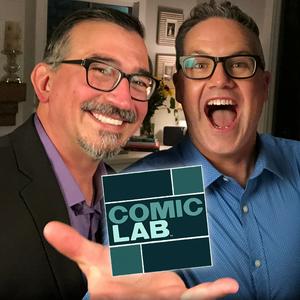
Descarga la app gratuita: radio.net
- Añadir radios y podcasts a favoritos
- Transmisión por Wi-Fi y Bluetooth
- Carplay & Android Auto compatible
- Muchas otras funciones de la app
Descarga la app gratuita: radio.net
- Añadir radios y podcasts a favoritos
- Transmisión por Wi-Fi y Bluetooth
- Carplay & Android Auto compatible
- Muchas otras funciones de la app


Comic Lab
Escanea el código,
Descarga la app,
Escucha.
Descarga la app,
Escucha.







![Podcast Cómo ganar amigos e influir sobre las personas [Spotify Edition]](https://mx.radio.net/podcast-images/175/como-ganar-amigos-e-influir-sobre-las-personas-spotify.jpeg?version=bc43cd7b76f606594080059877e3f74e0d72a279)











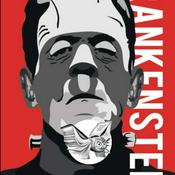
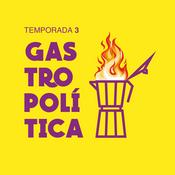
![Podcast El conde de Montecristo [Edición especial]](https://mx.radio.net/podcast-images/175/el-conde-de-montecristo-pce.jpeg?version=05be27f6b2b43d48696c1a4a8ab656d7ddd0a58c)


